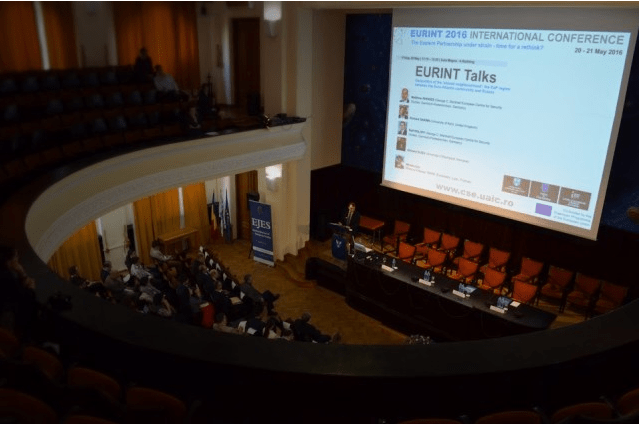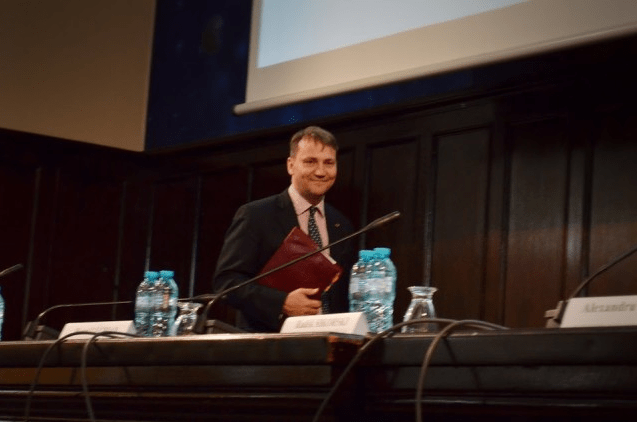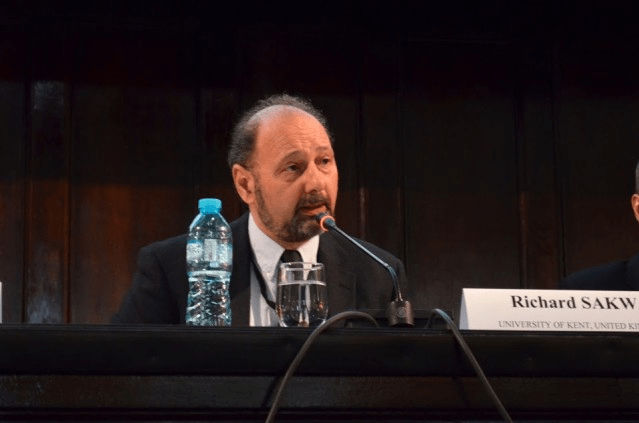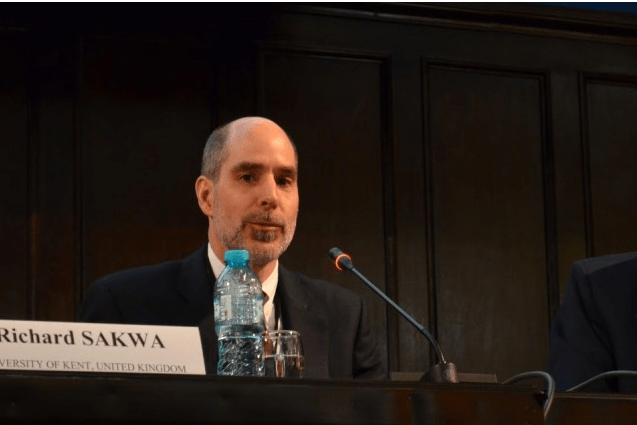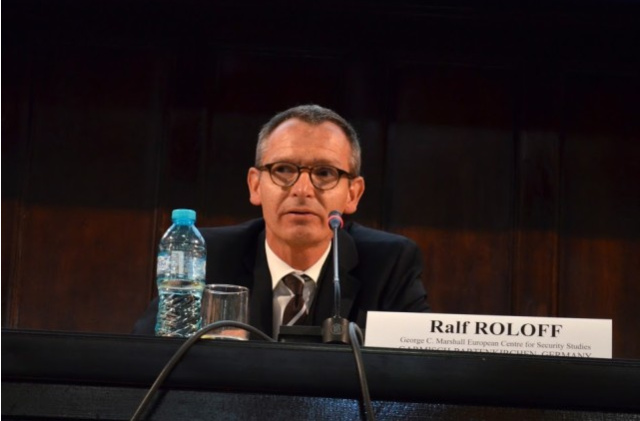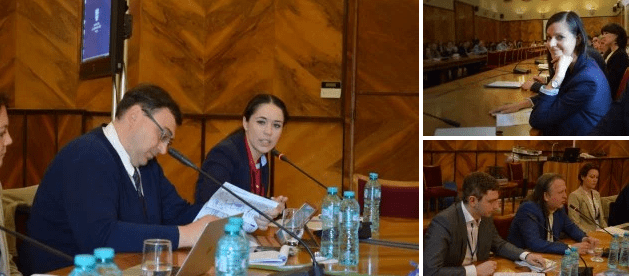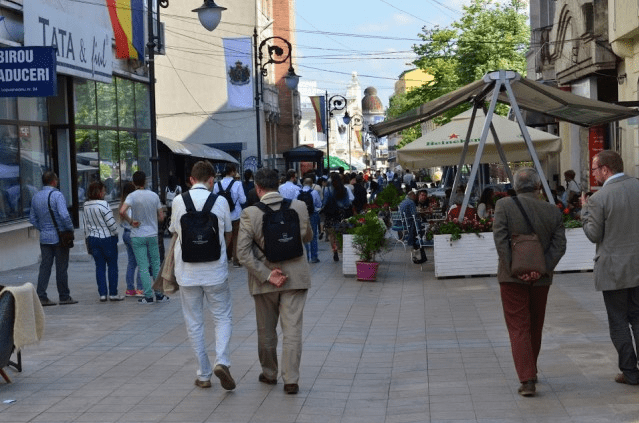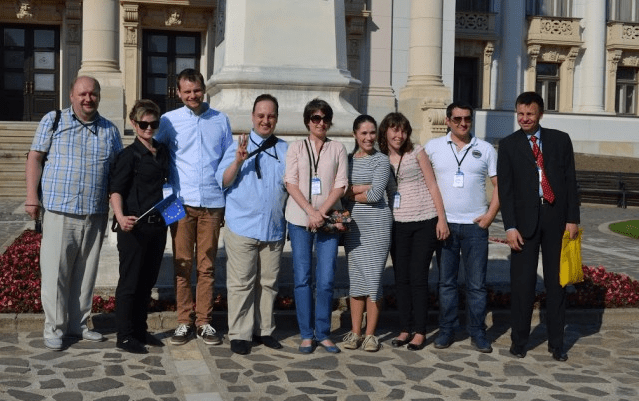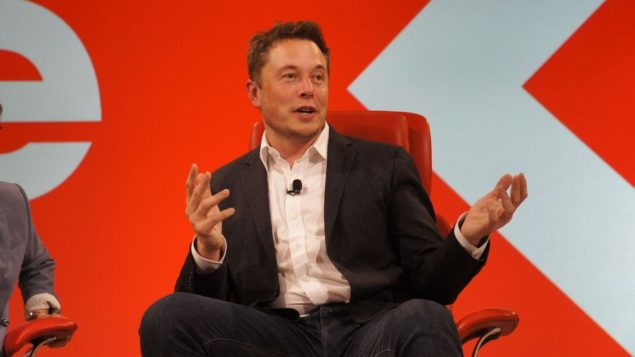EU EaP ‘Alive and Kicking’, but Rethought and Discussed by Scholars in Iasi
02.06.2016Strengthening the ‘Larger Europe’ dimension seems today to be one of vivid strategies to uphold Union colors in spite of multiple crises plaguing the EU.
The isolationist obscurantism soaring in old member states as a reaction to yet another crisis of Union’s growth or ‘adulthood’ (which, eventually, will, as always, require deeper integration and a more coherent outwards policy – can be to some extent confronted by success European integration is bringing to new member states.
One might even agree with a perception that currently the EU looks like a ‘juggernaut’ full of problems – although some of those controversies have been apparently produced by postponed solutions and severe lack of enforcement.
That, however can hardly be attributed to the EU ‘Eastern Partnership’ (EaP) project.
Although, due to the Russian military aggression against Ukraine and pressure exerted by Moscow upon Armenia, Russia’s hideous attempts to subvert Republic of Moldova’s EU association – the EaP has suddenly become a battlefield between a set of European values and institutions and Kremlin’s remake of old ‘Realpolitik’.
This new and defiant situation should have eventually triggered debates onrethinking the Eastern Partnership, to which a 5th EURINT conference in Iasi, Romania on 20-21st of May has provided a comfortable agenda and a cozy environment.
Launched by His Excellency Radek Sikorski, Poland’s MFA in 2007-14 keynote speech at the lofty ‘Alexandru Ioan Cuza’ University in Iasi venue, a scholarly assembly of more than a hundred participants from 20 countries has spent two days assessing challenges of European and regional security, legal and economic issues of intensifying Neighborhood policies.
It has been physically impossible to attend all of the interesting panels whereas they were simultaneously in session, however everyone could predictably list some personal priorities.
Nonetheless, the major attention was captured by plenary sessions featuring well-known researchers of international relations and Post-State-Socialistpolitical process. Evidently, the discussion, to a certain extent, has been streamlined by few important points made by Mr Sikorski, such as the initial idea behind the EaP, its somewhat intentionally blurred final objectives, the nature of impasse between Russia and the West, Polish accession experience, institutional change and the degree of leverage the EU has sustained over the EaP countries.
Although one might stress, that the weakest aspect of the EaP project is its limited ability to interact within the six nations’ format – obviously due to stark internal design differences between them – the EaP has still proved able to bringArmenia and Azerbaijan to the same table and to provide environment forBelarus casting glances at the West and easing political repression in exchange for some rewards.
Insofar, the Russian irredentism and the degree of collective response it requires seems to be the hardest issue to make sense of within the framework of the EaP, as long as, on one hand, Moscow has demonstrated enough ability to instigateproxy wars (or, put otherwise, ‘hybrid warfare’), but on the other hand Putin’s Postmodernist autocracy continues to produce the impression of a bloated paper tiger.
The latter perception, however, could hardly serve as any excuse for the state of relaxation or even stupor, so characteristic of NATO roughly between 2004 enlargement and late 2014, when the sense of insecurity has spread over Eastern Europe as a result of brutal Russian intervention in Ukraine.
The array of queries linked to the above subject area has been deliberated at some length by Dr Richard Sakwa of the University of Kent, advocating a somewhat inclusive approach towards Russia, based upon possible shortcomings of Western policies made in late 1980s and early 1990s with concern to Moscow.
In their turn, the representatives of George C. Marshall European Center for Security Studies in Garmish-Partenkirchen (Germany), Matthew Rhodes and Ralf Roloff have pondered upon the new security circumstances in Europe and the strains they have inflicted upon existing cooperation institutions.
One intermediate conclusion to be drawn from those parleys might be the lack of readiness within basic Western security nodes with regard to (actually, Radek Sikorski had also alluded to that) ‘sudden’ unhesitating consensus of Ukraine’s civic society in favor of European association back in 2013 and Russia’s rogue behavior in response.
In my opinion, among other plenary speakers (there were two sessions, first on the 20th and the second one on the 21st of May) three have had sort of caught ‘my ear’, notably, Dr Armand Gosu (University of Bucharest), Hanna Shelest fromUkraine Analytica and Dr Lucian Dirdala (Alexandru Ioan Cuza University of Iasi).
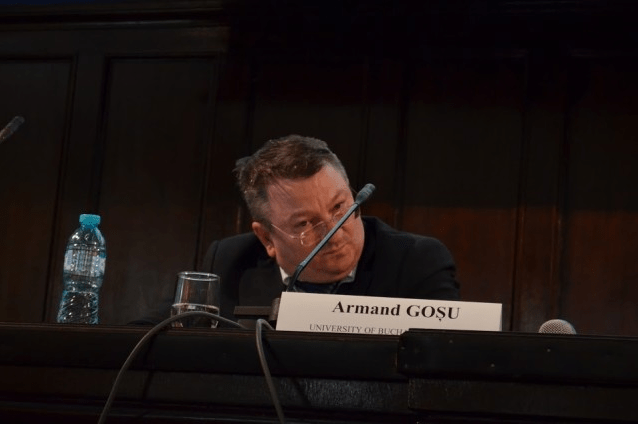
Dr Gosu speaking on Vlad Plahotniuc, the West-supported and compromising mastermind of Republic of Moldova political life :)
I won’t go into any unnecessary depth elaborating on their presentations or research, as long as that expertise is expected to be soon available in a more comprehensive format, although I should point to importance of studies focusing at criticism of Moldova comparative success story, and also limits of EU conflict mediation potential and conservative optimism connected to Europe’s remaining absorption and transformative capacity.
With concern to panels I had a chance to participate (or otherwise discuss some of the presentations) , I can scarcely evade mentioning Joanna Stryjek and Krzysztof Falkowski study of foreign direct investment flows in the EaP, Nadia Bureiko andTheodor Lucian Moga research of Ukraine’s ‘Europeanization’ case, Ivanna Machidze take on Poland’s Eastern policy conceptual frameworks and Nikita Lobanov well-read IR theory treatise endeavoring the EU strategic narrative faced with Russia’s escalation in the EaP region.
Wholeheartedly, I could refer to many other presentations just out of sheer joy I’ve acquired from contemplating what I might call worthy scholarly backgroundand, in most cases, advanced command of academic English. It is my guess therefore that a meticulous selection job has been done aforehand by the scientific committee – and, frankly, in its turn, the conference organizing committee has performed so smoothly to provide all of the guests with possibilities of informal interaction and spontaneous networking.
A certain personal inference I’ve taken back from Iasi event is twofold.
Firstly, despite the ongoing malaise of the Europe’s internal political process – the ‘box of carrots’ is still large enough to drive the Europeanization eastwards in a transformative manner and thus to confront painful effects of muddling-through disruption of former Russian empire.
Secondly, with concern to the intellectual strata involved into the drama of Europe’s cloudlike enlargement towards its cultural and ‘geographical’ borders – those growing, expanding and deepening epistemic networks continue to strengthen the ‘stubborn’ feeling of mutual integrity and to generate new substance for ‘Mission Europe’.
Max Mykhaylenko, the Editor
The author extends his most sincere gratitude to the EapPeal project and theCenter for European Studies of Alexandru Ioan Cuza University of Iasi for the opportunity to participate in the event.
